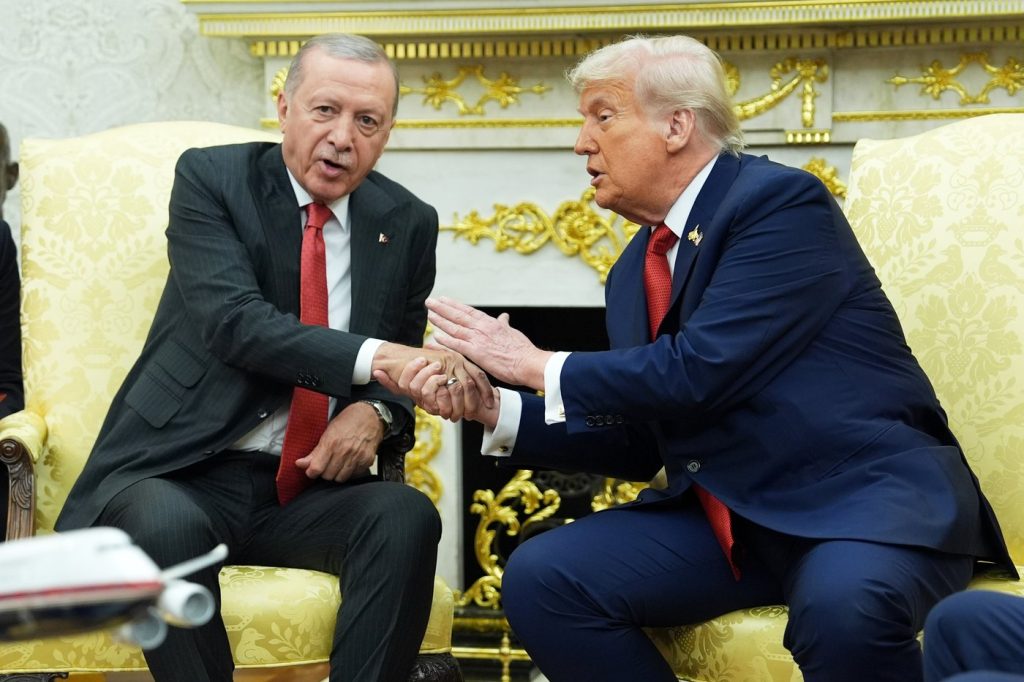In 2007, Hugo Chávez, Venezuela's president, revoked the license of the nation’s oldest private television station, highlighting his control over media as he consolidated power. Similarly, eight months into his second term, President Donald Trump suggested revoking licenses for U.S. television stations deemed excessively critical of him, drawing parallels between his actions and those of authoritarian leaders worldwide.
Since his return to office in January, Trump’s transformation of the federal government into a tool for personal will has led experts to compare him to other elected strongmen who suppress dissent and punish political adversaries, such as those in Hungary and Turkey. However, observers note a significant distinction: Trump appears to be moving more swiftly and overtly than his international counterparts.
David Smilde, a professor at Tulane University and a former resident of Venezuela during Chávez’s rise, emphasizes the rapidity of Trump's approach, stating, "The only difference is the speed with which it is happening." The United States, however, is not yet at the level of Venezuela or other authoritarian regimes. It maintains a strong opposition to Trump, a judiciary that frequently checks his initiatives, and a political structure that diffuses power across 50 states, making overarching control challenging.
Trump has publicly dismissed accusations of authoritarianism, asserting during his campaigns and interactions with reporters that he does not identify as a dictator. In a nuanced commentary, he reflected on the perception among supporters that a strong leader is preferable, remarking, “A lot of people are saying, 'Maybe we like a dictator.’” Yet, he has actively worked to centralize authority within the presidency, pursuing a campaign of retribution against perceived enemies, and purging government personnel deemed insufficiently loyal.
In a recent social media post, Trump criticized Attorney General Pam Bondi for not prosecuting his enemies aggressively enough, coupled with a subsequent felony indictment against former FBI Director James Comey. This effort aligns with Trump’s larger strategy of targeting groups he claims fund political violence, selectively mentioning Republican victims while targeting Democratic supporters.
Despite the controversial nature of his actions, including threats against media outlets like ABC following comments made by host Jimmy Kimmel regarding the assassination of a conservative activist, Trump has framed his agenda as accountability for political persecution experienced by him and his supporters. The White House claims this initiative is aimed at delivering truth to the American people and restoring integrity to the justice system.
In the aftermath of the January 6, 2021, Capitol attack, Trump pardoned over 1,500 individuals convicted of related offenses, showcasing his willingness to manipulate the judicial system for personal and political ends. He has also intimidated judges, targeted law firms, and shaped cultural institutions to align more closely with his viewpoints. Recently, he announced plans to deploy federal troops to cities governed by Democrats, signaling a potentially aggressive use of federal power against local governance.
Steven Levitsky, a Harvard political scientist, articulated concerns regarding the U.S. public's unpreparedness for the authoritarian tactics employed by Trump. Notably, foreign observers from nations familiar with such political dynamics ask how the U.S. allows for such erosion of democratic norms. Levitsky remarked on Americans lacking the same awareness of authoritarianism that citizens from Brazil, South Korea, and Germany might have due to their historical experiences.
Meanwhile, Alper Coskun, who served in the Turkish government under President Recep Tayyip Erdoğan, noted a grim humor within Turkey regarding America's current trajectory, asserting that the U.S. is adopting a similar authoritarian playbook to that of Erdoğan. He emphasized the difference lies in Trump’s audacity to bypass traditional checks and balances more blatantly than Erdoğan had to in Turkey.
Experts continue to monitor Trump's actions with caution, noting whether he will escalate to further tactics employed by authoritarian leaders, including suppressing political opponents, using the justice system as a weapon against electoral rivals, and dismantling democratic norms more deeply. The fashion in which these changes threaten American democracy remains a topic of profound concern among political analysts and historians.










